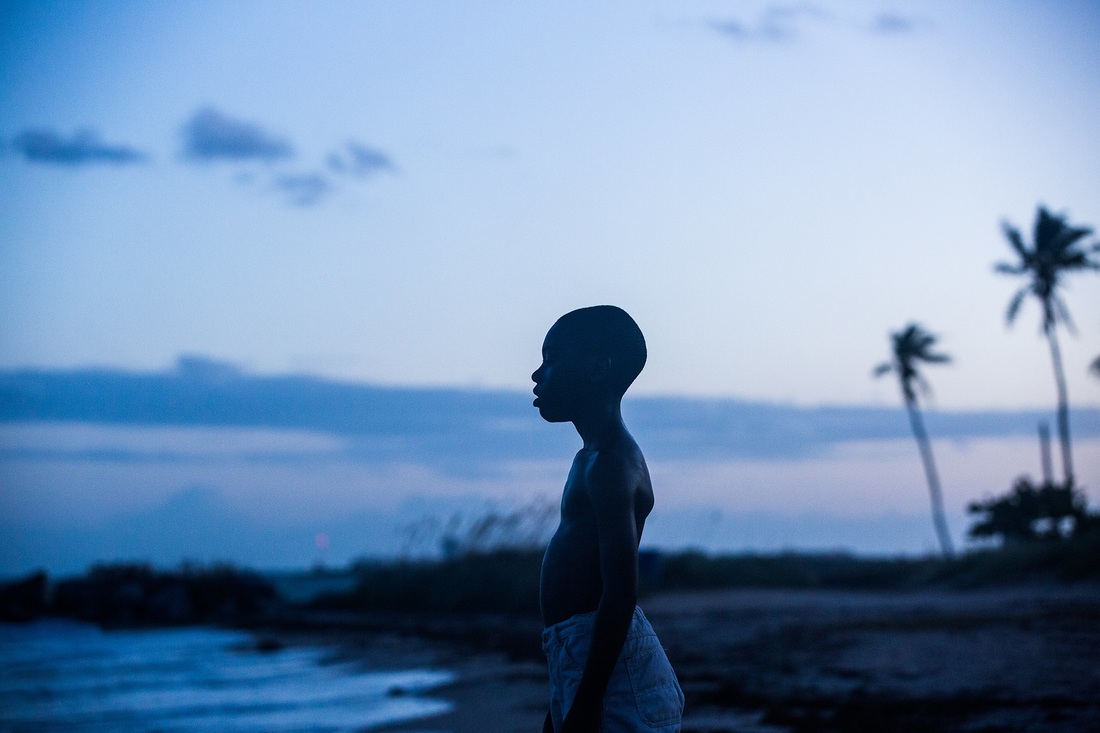Moonlight follows Chiron through three chapters of his life: youth where he’s miserably nicknamed “Little” (played by Alex Hibbert), adolescence (played by Ashton Sanders), and adulthood where he goes by “Black” (portrayed by Trevante Rhodes). The first time we see Little, he’s being chased and threatened by school bullies. Eventually Little runs fast enough and finds refuge in an abandoned apartment, but the yells of “faggot” and “weak” sound louder than ever when he’s hiding by himself. In a setting troubled with an unspoken masculinity complex (AKA my beautiful homeland of 18 years South Florida), Little struggles with his identity and classifying it. It’s not like Little is outwardly homosexual at his age, but his classmates make fun of his small size, his aversion to playing football and his inclination to actually express himself in dance class.
So when neighborhood drug dealer Juan (Mahershala Ali) finds Little hiding in that empty apartment, it’s like a lifesaver thrown in to save Little from the drowning expectations of manhood. Juan offers a home with warm food, clean bedsheets, and most importantly safe from judgement. It’s also got one less drug-addicted mother (Naomie Harris), who haunts Little’s nightmares all the way into his adulthood. Little avoids going home as much as possible to get away from his negligent junkie of a mother, but it’s tough when she’s the only being he really has.
So when Chiron, now in high school, struggles but finally achieves that “You don’t even know” in a whisper to his guidance counselor, it’s truly resounding. That guidance counselor, Juan, Chiron’s mother or we as an audience will never know what Chiron is going through. Director Barry Jenkins, a graduate of FSU film school with his cinematographer James Laxton and also raised in the South Florida area, has uncanny control over this idea, crafting every shot of Moonlight to be as sympathetic as the last. He not only pushes the conventions of masculinity through Chiron, but perfectly captures the absolute endeavor of crystallizing an identity, especially one that feels so unconventional. Personally, watching Chiron struggle in a setting that I endured for 18 years, where I constantly questioned my sexuality and even my personhood because I wasn’t some sexy beach go-er, where I listened to Frank Ocean’s channel Orange nonstop for some kind of retreat, where I never felt fully satisfied with my friends because I never felt understood- it struck a chord with me that no cinematic experience has ever done before.
Fast forward some years and Chiron has chiseled up to the adult man that everyone refers to as Black (it’s even on his license plate, as well as “305,” the area code for Miami). He didn’t really pick the nickname this time either; it was assigned to him by his best friend Kevin (Jaden Piner -> Jharrel Jerome -> Andre Holland) in grade school, someone he hasn’t connected with in years. When they are inevitably reunited, watching Black actually feel comfortable with someone who really knows him is a relief. Throughout Moonlight, Chiron speaks very little but so does every character, and Jenkins focuses on those silences to convey some of the film’s most powerful moments. It’s similar to last year’s Carol, where these characters aren’t given the words to express how they feel under society, and that Jenkins could achieve director Todd Haynes-level mastery by his second film is nothing short of amazing. I admittedly had a difficult time writing about Moonlight because I wanted to talk at length about it’s politics and unafraid blackness, it’s setting that I relate to so heavily, it’s main character development divided into chapters that reflect realistic growth, the incredible acting done by ALL, the gorgeous blue-hue throughout… at this point, I can only let Jenkins’s masterpiece speak for itself.
GRADE: A+

 RSS Feed
RSS Feed
